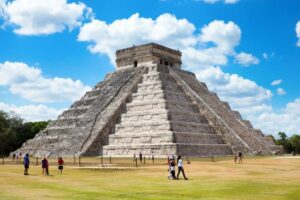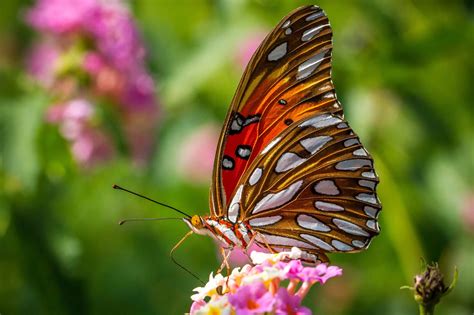Mexican culture
is incredibly diverse and rich, influenced by a complex history of indigenous civilizations, Spanish colonialism, and more recent global interactions. Here are some key aspects of Mexican culture:
-
Cuisine: Mexican cuisine is renowned worldwide for its flavorful dishes. Tacos, enchiladas, tamales, mole (a rich sauce), and guacamole are just a few examples. Street food is prevalent, offering a variety of delicious options.
-
Art and Music: Mexico has a vibrant artistic tradition, with famous painters like Frida Kahlo and Diego Rivera. Traditional Mexican music includes genres like mariachi, ranchera, and cumbia. Dance is also an integral part of Mexican culture, with the lively and colorful folkloric dances representing different regions.
-
Language: Spanish is the official language of Mexico, but there are also over 60 indigenous languages spoken throughout the country, such as Nahuatl, Maya, and Zapotec.
-
Festivals and Celebrations: Mexico is known for its numerous festivals and celebrations. Dia de los Muertos (Day of the Dead) is one of the most famous, but there are many others, including Cinco de Mayo, Independence Day (September 16), and various regional festivals.
-
Religion: Mexico has a predominantly Catholic population, with Catholicism playing a significant role in cultural traditions and celebrations.
-
Family and Community: Mexican culture places a strong emphasis on family and community. Extended families often live close to each other and participate in each other’s lives. Large gatherings and celebrations are common.
-
Architecture: Mexico boasts a rich architectural heritage, from pre-Hispanic pyramids like those at Teotihuacan to colonial-era churches and buildings. Modern Mexican architects have also made significant contributions to contemporary architecture.
-
Literature: Mexico has a strong literary tradition, with authors like Octavio Paz and Carlos Fuentes gaining international acclaim. Ancient Mexican civilizations, such as the Maya and Aztec, left behind significant written works as well.
-
Traditional Clothing: Traditional Mexican clothing varies by region. You may see women wearing colorful embroidered dresses called “huipils” or men in embroidered shirts known as “guayaberas.”
-
Crafts and Artisanal Goods: Mexico is known for its artisanal crafts, including pottery, textiles, jewelry, and ceramics. Each region often has its own unique style and techniques.
-
Sports: Soccer (known as football in Mexico) is the most popular sport in the country. Mexico has a strong soccer culture, and its national team is highly competitive on the international stage.
-
Lucha Libre: Mexican professional wrestling, known as “Lucha Libre,” is a unique and theatrical style of wrestling with colorful masks and high-flying moves.
Mexican culture is a tapestry of traditions, flavors, and influences that have evolved over centuries, and it continues to be a source of pride and identity for the Mexican people.

Certainly! Cancun, Mexico, is a world-renowned tourist destination located on the northeastern coast of the Yucatan Peninsula. It’s known for its stunning beaches, turquoise waters, vibrant nightlife, and a wide range of recreational activities. Here are some key highlights about Cancun:
-
Beaches: Cancun boasts some of the most beautiful beaches in the world. The hotel zone, a narrow strip of land between the Caribbean Sea and a lagoon, is lined with resorts that offer easy access to the beach.
-
Water Activities: The warm Caribbean waters make Cancun a perfect place for water sports and activities such as snorkeling, scuba diving, parasailing, and jet skiing.
-
Mayan Ruins: The region around Cancun is rich in ancient Mayan history. Visitors can explore archaeological sites like Tulum and Chichen Itza, which are within a few hours’ drive from Cancun.
-
Nightlife: Cancun is famous for its vibrant nightlife. The hotel zone is home to numerous bars, nightclubs, and restaurants, making it a hub for partygoers.
-
Cuisine: Mexican cuisine is diverse and delicious. You can enjoy a wide range of traditional dishes and street food, including tacos, ceviche, and regional specialties.
-
Eco-parks: Nearby eco-parks like Xcaret and Xel-Ha offer opportunities to experience nature and engage in activities like swimming in cenotes (natural sinkholes), zip-lining, and observing local wildlife.
-
Shopping: Cancun has a variety of shopping options, from luxury boutiques to local markets where you can buy souvenirs and handcrafted items.
-
Cultural Events: Throughout the year, Cancun hosts various cultural events, including music festivals, art exhibitions, and traditional Mexican celebrations.
-
Island Excursions: You can take day trips to nearby islands like Isla Mujeres and Cozumel for more relaxation and water-based activities.
-
Weather: Cancun enjoys a tropical climate, making it a year-round destination. However, it’s essential to be mindful of hurricane season, which typically runs from June to November.
Cancun is a fantastic destination for beach lovers, adventure seekers, and those interested in exploring Mexican culture and history. It offers a wide range of experiences and activities for visitors of all interests.




